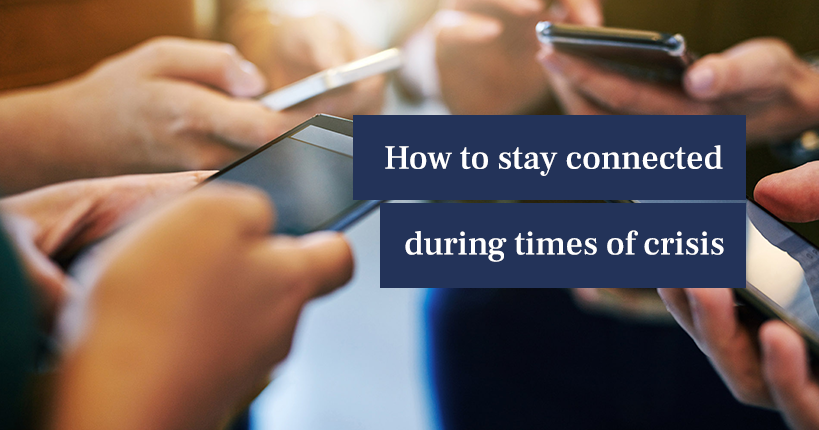Staying connected during times of crisis is more important than ever. Whether you’re facing a natural disaster, a pandemic, or some other type of crisis, having access to reliable communication services can be a matter of life or death. But if you’re on a tight budget, finding affordable ways to stay connected can be a challenge.
Fortunately, there are a few options available to help you stay connected without breaking the bank. One option is the Federal Communications Commission’s (FCC) Lifeline program. Lifeline is a program that provides discounted phone service to eligible low-income households. The program, which was created in the 1980s to ensure that all Americans have access to affordable communication services, has helped millions of people stay connected.
Another option is the FCC’s Affordable Connectivity Program. This program, which was created in response to the COVID-19 pandemic, provides funding to broadband providers to help them build out their networks and offer affordable internet service to low-income households. If you live in an area where broadband internet access is either unavailable or unaffordable, this program could be a great way to stay connected.
In addition to these programs, there are a few other ways you can stay connected during times of crisis:
- Use social media: Social media platforms like Facebook, Twitter, and Instagram can be a great way to stay connected with friends and family during a crisis. You can use these platforms to share updates, ask for help, and stay informed about what’s going on.
- Use messaging apps: Messaging apps like WhatsApp, Messenger, and Skype can be a good alternative to phone calls and text messages, especially if phone service is limited. These apps allow you to send messages and make calls over the internet, which can be especially useful if you don’t have a strong phone signal.
- Make sure you have multiple ways to communicate: Depending on the situation, certain forms of communication may be more reliable than others. For example, in the event of a power outage, a battery-powered phone or a satellite phone may be more reliable than a landline or internet connection. Consider having multiple communication options available, such as a phone, a computer, and a two-way radio.
- Stay informed: In times of crisis, it’s important to stay informed about what’s happening and what you should do. Keep track of updates from official sources, such as government agencies, news organizations, and emergency management agencies.
- Keep in touch with loved ones: Use your communication devices to stay in touch with loved ones, especially if you’re separated or in different locations. This can help to reduce stress and provide a sense of support and connection.
- Seek help if needed: If you’re in danger or need assistance during a crisis, don’t hesitate to seek help. Use your communication devices to call for help or to access emergency services.
In conclusion, there are a few options available to help you stay connected during times of crisis, including the Lifeline program and the Affordable Connectivity Program. Whether you choose to use social media, messaging apps, or a combination of both, it’s important to have a plan in place to stay connected when you need it most.


